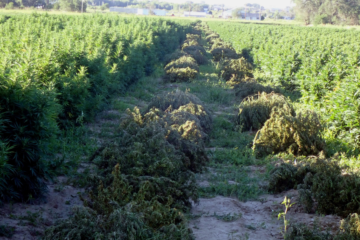State officials in Pennsylvania are signaling that they are prepared to implement marijuana legalization if lawmakers move forward with the reform. While they are not necessarily advocating for it, they made it clear that if the state decides to legalize adult-use cannabis, they expect to be equipped to handle the transition. However, political divisions remain, making the path forward uncertain.
Officials Offer Neutral Stance, But Say They’re Ready
During a series of hearings before key legislative committees last week, Pennsylvania lawmakers questioned police and health officials about their stance on marijuana legalization. The response was largely neutral. Officials did not endorse legalization but stated they are prepared to manage the regulatory and enforcement challenges if it becomes law.
Pennsylvania State Police Commissioner Christopher Paris, speaking before the Senate Appropriations Committee, emphasized that while he hasn’t personally spoken to Gov. Josh Shapiro about the proposal, law enforcement expects to be included in discussions as legislation is drafted. “Certainly, we would be part of a conversation as any legislation moves forward, and we would appreciate a seat at the table,” Paris said.
Health officials have also indicated they are preparing for the potential impact on public health, workplace safety, and substance abuse treatment programs. They expect to work with lawmakers to shape regulations that address these concerns if legalization advances.

Political Divide Could Stall Progress
While some lawmakers, including Sen. Sharif Street (D), are optimistic about legalization passing this year, others remain skeptical. Street, a long-time supporter of the reform, said he believes legalization is imminent. “I don’t have a crystal ball on this stuff—but I think it will [happen this year],” he stated.
However, not everyone shares his confidence. Sen. Scott Martin (R), chairman of the Appropriations Committee, dismissed the idea of legalization gaining traction within the Republican-controlled Senate. “I don’t see that issue going anywhere with my Senate Republican caucus, and for many different reasons,” Martin said.
This divide reflects broader national trends, where legalization is often supported by Democratic lawmakers and opposed by many Republicans, particularly in states where the GOP holds legislative power.
Budget Proposal Includes Cannabis Legalization
Gov. Josh Shapiro’s latest budget proposal includes plans for adult-use marijuana legalization, adding another layer of pressure on lawmakers. While the details of his proposal remain unclear, it suggests that the governor is serious about moving forward with the reform.
Pennsylvania has already legalized medical marijuana, and some lawmakers see adult-use legalization as the next logical step. They argue that the state is losing out on potential tax revenue as residents cross into neighboring states like New Jersey, which have already embraced legal cannabis.
A key consideration for lawmakers will be how tax revenue from marijuana sales would be allocated. States with legal markets often use cannabis tax funds for education, public health initiatives, and law enforcement training to handle impaired driving concerns.
Law Enforcement’s Role in Legalization
One of the biggest concerns for law enforcement is how legalization would impact public safety. Officials have pointed to states like Colorado and California, where marijuana-related DUI cases have increased post-legalization.
Pennsylvania police officials say they would need additional training and resources to handle cases involving impaired driving. However, they also acknowledged that legalization could free up law enforcement resources currently spent on minor cannabis-related offenses.
Some experts believe legalization could lead to fewer arrests for low-level marijuana possession, reducing strain on the criminal justice system. But the trade-off is an increased need for officer training to detect cannabis impairment and manage new regulations.
What’s Next?
The road to legalization in Pennsylvania remains uncertain. While Gov. Shapiro has signaled support and some lawmakers are optimistic, Republican opposition in the Senate could be a major roadblock.
If the legislature does move forward with legalization, officials from law enforcement and health agencies say they are ready to play their part in crafting regulations that ensure public safety and effective implementation. For now, Pennsylvania residents will have to wait and see whether 2024 is the year marijuana legalization finally becomes reality in the Keystone State.



